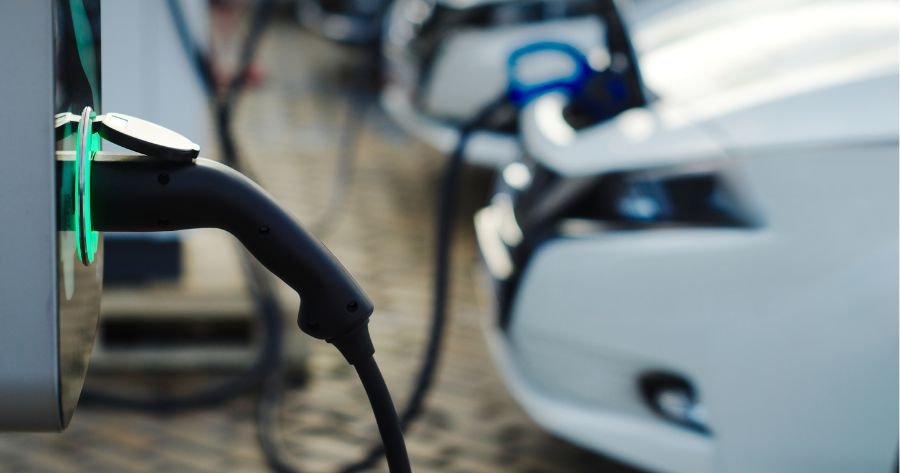
Klimabonus Mobilitéit diet
The "Klimabonus Mobilitéit" scheme is the government's key to decarbonising private mobility. As well as promoting pure electric and hydrogen fuel cell motor vehicles and pedal-assist bicycles and cycles, it also promotes the installation of private charging points for electric vehicles.
Since its introduction in 2020, more than 3,500 grants for private charging points have already been awarded under the scheme, contributing to the decarbonisation of the transport sector.
On 4 August 2023, the grand-ducal regulation of 29 july 2023 amending the grand-ducal regulation of 19 august 2020 introducing financial aid for the installation of private charging points for electric vehicles has been published in the Official Journal. The purpose of this change to the regulatory framework is to:
- To extend the aid scheme until 31 December 2024;
- Facilitate the installation of charging points in condominiums;
- Widen the circle of aid recipients;
- Introduce the possibility of granting aid through a leasing company.
Extension of the aid scheme until 31 December 2024
The financial assistance scheme has been extended by 18 months until 31 December 2024. It is now aligned with the deadline for the first entry into service of 100% electric vehicles receiving financial assistance.
It's now easier to install charging points in condominiums
Bearing in mind that it is preferable from a technical point of view to deploy chargepoints as part of a coherent project to equip the building as a whole, the new regulation introduces financial aid of up to 450 euros for pre-equipping a site with a view to installing a chargepoint at a later date and contributing to the costs of installing a collective intelligent charge management system in the building. In this way, owners or tenants of spaces in a residence are encouraged to contribute to the joint costs of installing chargepoints, even if they prefer not to install the chargepoint until a later stage.
In addition, instead of site owners and tenants, the scheme also allows syndicates of co-owners to benefit from financial assistance if the charging points are installed as a shared facility.
Widening the circle of bonus beneficiaries
Until now, the financial aid scheme was only available to natural persons who owned or leased the parking space where the charging point was installed, but the circle of eligible persons has now been extended to legal entities under private law that do not have an economic activity. (non-profit-making associations, foundations and non-trading companies). These people could not benefit from either the aid scheme for private individuals or the aid scheme for businesses introduced by the Law of 26 July 2022 on the aid scheme for businesses investing in charging infrastructure for electric vehicles.
Possibility of granting aid via a leasing company
Given the growing importance of leasing models, particularly in the electric vehicle market, and the facilitating role that leasing companies can play in the installation of charging points, the possibility of benefiting from the aid via a leasing company has been introduced. In this case, however, the beneficiary of the aid must always remain the end user, who meets the eligibility conditions for the aid and who must become the owner of the bollard at the end of the contract. The aid is paid to the leasing company, which passes it on to the end user via a reduction in the monthly premiums for the purchase of the terminal. This reduction must be transparently communicated to the customer.
Technical adjustments to the aid scheme
A number of clarifications and technical adjustments have been made to the financial aid scheme, aimed primarily at professionals. In addition, it has been specified that charging points must have a minimum output of 3.7 kW, and that mobile charging points are eligible as long as they can be attached to a fixed system.
In view of the extension of the aid scheme to other categories of beneficiaries, the number of eligible pitches per applicant and per dwelling or business premises has been adjusted.
The amount of financial assistance remains unchanged at 50% of the cost (excluding VAT) of purchasing and installing the charging point. The maximum amounts of aid vary according to the number of charging points attached to the building and the intelligence of the charging system.
More information, including a link to the aid application forms, can be found on the Klima-Agency website (aides.klima-agence.lu).
This new Grand-Ducal regulation was drawn up jointly by the Ministry for the Environment, Climate and Sustainable Development, the Ministry for Energy and Town and Country Planning, the Ministry for Mobility and Public Works and the Environment Administration. It complements the aid scheme and calls for projects aimed at businesses, and demonstrates the government's determination to rapidly deploy a charging infrastructure for electric vehicles.
Press release from the Ministry of the Environment, Climate and Sustainable Development / Ministry of Energy and Spatial Planning / Ministry of Mobility and Public Works / Environmental Administration

